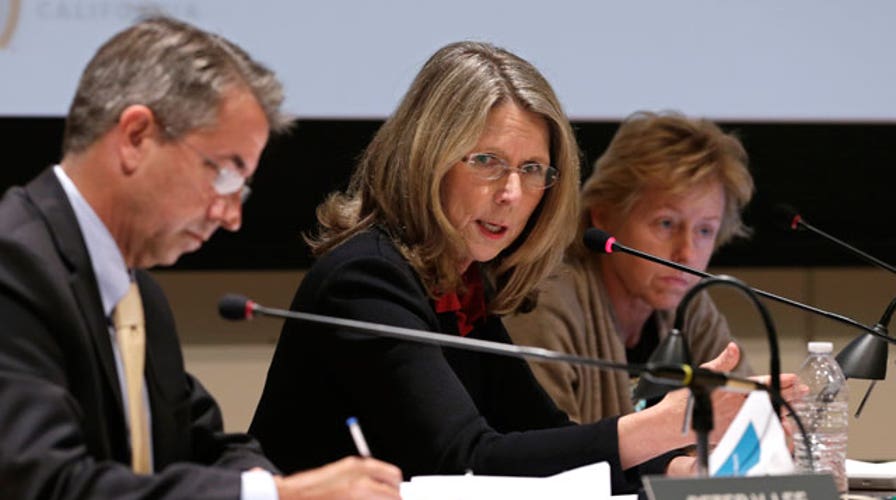Connecticut is the most recent state to reject President Obama's plan to "fix" his signature health-care law after millions of Americas received policy cancellation notices -- a trend that suggests the president's proposed solution will have little impact on the issue.
At least eight others states -- California, Indiana, Massachusetts, Minnesota, New York, Rhode Island, Vermont and Washington -- have rejected the president’s Nov. 14 proposal that insurance companies offer plans that don’t comply with ObamaCare requirements for at least a year. Connecticut decided Friday.
Though ObamaCare is federal law, governors and insurance commissioners must allow providers to make the exceptions because insurance is regulated differently in each state.
Obama in touting his sweeping health-care reform law before signing it in 2010 told Americans they could keep their existing insurance plans if they liked them.
However, many of those plans do not meet the law's new standards, which has resulted in millions of cancellation notices being mailed out over the past few months and the president announcing his proposed solution.
"We are not going to gut this law," Obama said during a speech in Cleveland. "We will fix what needs to be fixed, but we're going to make the Affordable Care Act work."
This is not the first so-called fix the president has proposed, starting with him putting a one-year delay on the ObamaCare mandate that small businesses provide insurance to employees, to allow owners to sort through the complex paperwork.
And the White House this week extended the enrollment deadline after the disastrous Oct. 1 rollout of the healthcare.gov website.
Officials said Friday they would extend the Dec. 15 deadline to Dec. 23 for insurance coverage that kicks in Jan 1. Those who fail to enroll by March 15 face a tax penalty.
New York Gov. Andrew Cuomo, a Democrat, last week rejected the offer, saying his state exchange is working well and the state-run website has not had the technical glitches like the federal site.
One of the biggest concerns among state officials is that allowing residents to wait a year will make the overall ObamaCare situation worse because the young, healthy people needed to enroll and cover the cost of the elderly and other more costly customers will indeed wait.
Minnesota Democratic Gov. Mark Dayton and other governors reportedly said no to the Obama offer over concerns it would destabilize their states insurance markets and result in higher premiums for too many residents.
On Thursday, California’s health insurance exchange voted unanimously against the proposal.
The Covered California Board of Directors decided instead to stick with its approach of phasing out the non-compliant policies by year’s end, saying Obama’s request that insurers let Americans keep those plans through 2014 will not help consumers in the end.
“The board cited that extending the deadline offers no benefit to the consumer and may create confusion about accessing affordable health care coverage through Covered California,” it said in a press release.
However, at least a dozen states have agreed to the proposal or were already allowing insurers to let customers renew existing plans.
Among them are Arkansas, Florida, Georgia, Kentucky, North Carolina, Ohio, Oregon and Texas. Roughly another 20 states have yet to decide.
The other major factor is whether insurance companies will comply.
North Carolina Blue Cross Blue Shield and Florida Blue have agreed but Blue Cross Blue Shield Alabama did not.
The Alabama group said Wednesday that temporarily reinstating out-of-compliance policies would “destabilize” the state’s insurance market and that “the ultimate impact would be higher healthcare costs for all of our customers, now and in the near future.”





